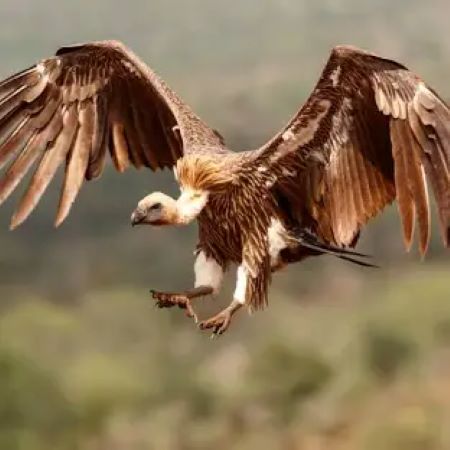The GAIA Initiative, a collaborative effort between research institutions, conservation organizations, and enterprises, has pioneered a cutting-edge approach to wildlife conservation by merging natural vulture behaviour with artificial intelligence (AI). Spearheaded by the Leibniz Institute for Zoo and Wildlife Research (Leibniz-IZW), in partnership with the Fraunhofer Institute for Integrated Circuits IIS and Tierpark Berlin, this innovative method aims to develop an early warning system for detecting ecological changes and critical incidents in real-time.
Vultures as natural death detectors
Vultures, particularly white-backed vultures (Gyps africanus), play a crucial role in ecosystems as natural death detectors. These birds evolved over millions of years, and possess extraordinary vision and cooperative communication that enable them to locate carcasses across vast landscapes swiftly. Their scavenging behaviour not only cleans the environment of carrion but also prevents the spread of wildlife diseases.
The GAIA Initiative harnesses these natural abilities by equipping vultures with biologging tags that record their movements and behaviours. These tags, combined with AI algorithms, create a sophisticated system to monitor animal mortality and environmental disturbances.
Leveraging artificial intelligence
The biologging tags feature two sensors: a GPS sensor that tracks location data and an ACC sensor that captures detailed movement profiles across three spatial axes. Using AI algorithms trained on over 15,000 verified data points, researchers classified specific vulture behaviours such as flying, feeding, and resting.
Dr. Wanja Rast, a wildlife biologist and AI specialist, explained, “These behaviour signatures allow us to pinpoint feeding sites and potential carcass locations with 92% accuracy.” The integration of GPS and behaviour data enabled scientists to identify and verify over 500 carcass sites and 1,300 non-carcass activity clusters, providing invaluable insights into ecosystem health.
Real-time environmental monitoring
The next generation of animal tags, developed by GAIA’s consortium, integrates AI directly into the devices. This advancement allows real-time detection of carcass locations without requiring extensive data transfers. The use of satellite communication ensures functionality in remote regions, making it possible to monitor critical incidents like disease outbreaks, droughts, and poaching with unprecedented efficiency.
Conservation imperative
White-backed vultures and other vulture species face severe threats, with populations declining by 90% in three generations due to habitat loss, food scarcity, and poisoning. GAIA’s research not only aids conservation efforts but also enhances understanding of vulture behaviour, including their communication, foraging, and breeding practices.
Since its inception, the GAIA Initiative has tagged over 130 vultures across Africa, analyzing more than 95 million GPS data points and 13 billion ACC records. This groundbreaking approach underscores the potential of combining animal intelligence with AI to safeguard ecosystems and advance wildlife conservation.
Dr. Ortwin Aschenborn, the co-project leader at Leibniz-IZW, emphasized, “Our work demonstrates that vultures, biologging technology, and AI can collectively serve as powerful tools to address ecological challenges and protect vulnerable species.”
The GAIA Initiative continues to push the boundaries of wildlife research, fostering a deeper connection between technology and nature to preserve biodiversity for future generations.


